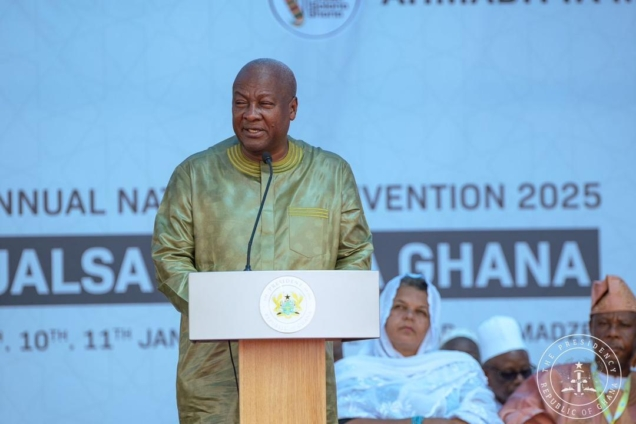President John Dramani Mahama has assured ghanaians and all residents in that the country of his government’s determination to keep the lights on despite the challenges in the power sector.
Addressing the National Convention of the Ahmadiyya Muslim Mission Ghana on Thursday, January 9, President Mahama acknowledged the pressing issues within the energy sector and assured of that his governemtn is working tirelessly to stabilise the situation.
The President urged citizens not to lose hope, emphasising that proactive measures are being implemented to avert potential power shortages and ensure a reliable supply of electricity.
The President’s remarks come amid heightened concerns over fuel shortages for thermal plants and delayed pipeline maintenance by the West African Gas Pipeline Company, which experts warn could exacerbate the energy situation if not addressed.
“We are assuming office at a critical time in our nation’s history. Ghana is faced with significant challenges. But that is exactly the reason why you elected us. We will transparently let you understand what those challenges are and we will take responsibility for solving them.
“There is a threat of power outages but my brothers and sisters, don’t despair. You elected us to solve the problems not to put the blame on anybody else. I can assure you of some of the ideas they have come up with. We will make sure that your lights stay on.”
The West African Gas Pipeline Company (WAPCo), on January 9, agreed to postpone its planned pipeline maintenance by two weeks, averting an imminent power crisis in Ghana.
This decision comes after intense negotiations led by a technical committee established by Chief of Staff Julius Debrah to tackle the looming energy challenge.
The maintenance, initially scheduled to commence this week, was flagged by the Ghana Grid Company (GRIDCo) as a significant threat to the country’s electricity supply.
GRIDCo warned that ongoing fuel shortages for thermal plants, combined with the disruption in gas supply from the pipeline, would severely cripple Ghana’s power generation capacity.
credit: citinesroom



